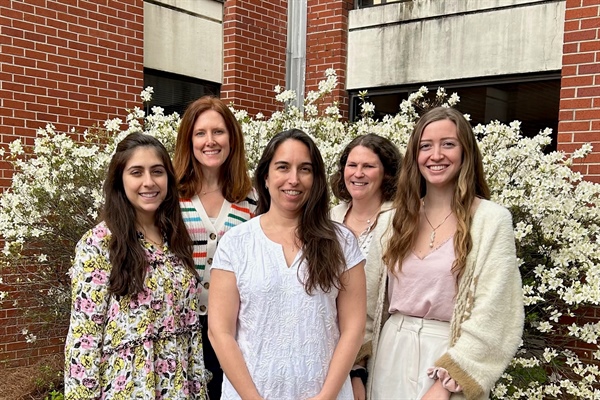
Published via NOAA
The National Sea Grant Law Center is a national center that coordinates and enhances Sea Grant’s activities in legal scholarship and outreach related to ocean, coastal, and Great Lakes issues. Attorneys at the Law Center analyze and report on current issues, educate policy makers, practitioners, students and the public about marine resource policy issues, and fill research requests from Sea Grant College Programs and federal and state government agencies.
The five lawyers currently working at the National Sea Grant Law Center tackle a wide range of challenging legal issues in their efforts to support the work of colleagues around the country. Whether it’s tracking litigation related to aquaculture permitting, researching federal food safety regulations to figure out where seaweed fits in, or fielding questions about legislation introduced in the House proposing changes to the Aquatic Nuisance Species Task Force, the Sea Grant Law Center is there to help.
“We want to make the legal framework governing our ocean, coastal, and Great Lakes resources as understandable as possible, so that feasible solutions can be developed to address problems,” says National Sea Grant Law Center director Stephanie Otts.
One unique project at the National Sea Grant Law Center is its work on seaweed. Started by a question from Connecticut Sea Grant on how to best regulate raw seaweed as a food source to protect human health, the National Sea Grant Law Center has become a leader on legal questions related to seaweed wild harvest and aquaculture and is an active participant in the Sea Grant Seaweed Hub. “One of my favorite things about working at the Law Center is that we get asked novel legal questions that allow us to constantly learn new things,” says Senior Research Counsel Cathy Janasie. “Before I started working on our seaweed projects, I never really thought about seaweed except when I was at the beach swimming or fishing or when I went out for sushi. Now seaweed is one of my favorite topics that I have worked on in my time at the Law Center.” Products from this research include a workshop for state agency personnel responsible for seaweed regulation, compilations of relevant state laws and policies, and infographics that explain how seaweed fits into federal food safety regulation. These products are helping to increase understanding among state agencies and Sea Grant extension agents about how raw seaweed is currently regulated across the country, which enables them to provide better support to the seaweed aquaculture industry as it grows.
This summer, one National Sea Grant Law Center legal intern will have the opportunity to contribute to this seaweed work. In 2021, the National Sea Grant Law Center launched its Sea Grant Law Diversity Internship Program. The summer internship seeks to provide experiential learning opportunities to a law school student from a diverse background in the field of ocean, coastal, and Great Lakes law, with an emphasis on issues facing underrepresented or indigenous communities. Each year, the National Sea Grant Law Center partners with another Sea Grant program in the network to expose the intern to state-level Sea Grant programming. The National Sea Grant Law Center’s program partner in 2023 is the University of Southern California (USC) Sea Grant Program. The Sea Grant Law Diversity Legal Intern will assist USC Sea Grant with a review of California law applicable to seaweed aquaculture, as well as a project aimed to address inequities in seafood access and consumption.
Ocean and coastal law is a niche field within the legal profession, and it can be hard for students to gain the necessary expertise to pursue careers in the area. “Working with law students gives law center attorneys a chance to contribute to the education of future attorneys working on ocean and coastal issues,” says Senior Research Counsel Terra Bowling. “The students provide valuable research assistance to us, and we love the enthusiasm they bring to our projects.” In addition to the Sea Grant Diversity Legal Intern, two additional legal interns will be working with the National Sea Grant Law Center this summer, one of whom will contribute to a project with the South Carolina Sea Grant Consortium and Georgia Sea Grant related to contaminants of emerging concern.
The Law Center is part of the broader Sea Grant Legal Network, which in addition to the Sea Grant Law Center, includes legal professionals based at individual Sea Grant programs working on more local or regional issues across the Sea Grant network.
Learn more about the work of the Law Center at https://nsglc.olemiss.edu/ or https://seagrant.noaa.gov/Program-Locations/lawcenter
To learn more about the Sea Grant Legal Network, visit https://seagrant.noaa.gov/insideseagrant/sgln

